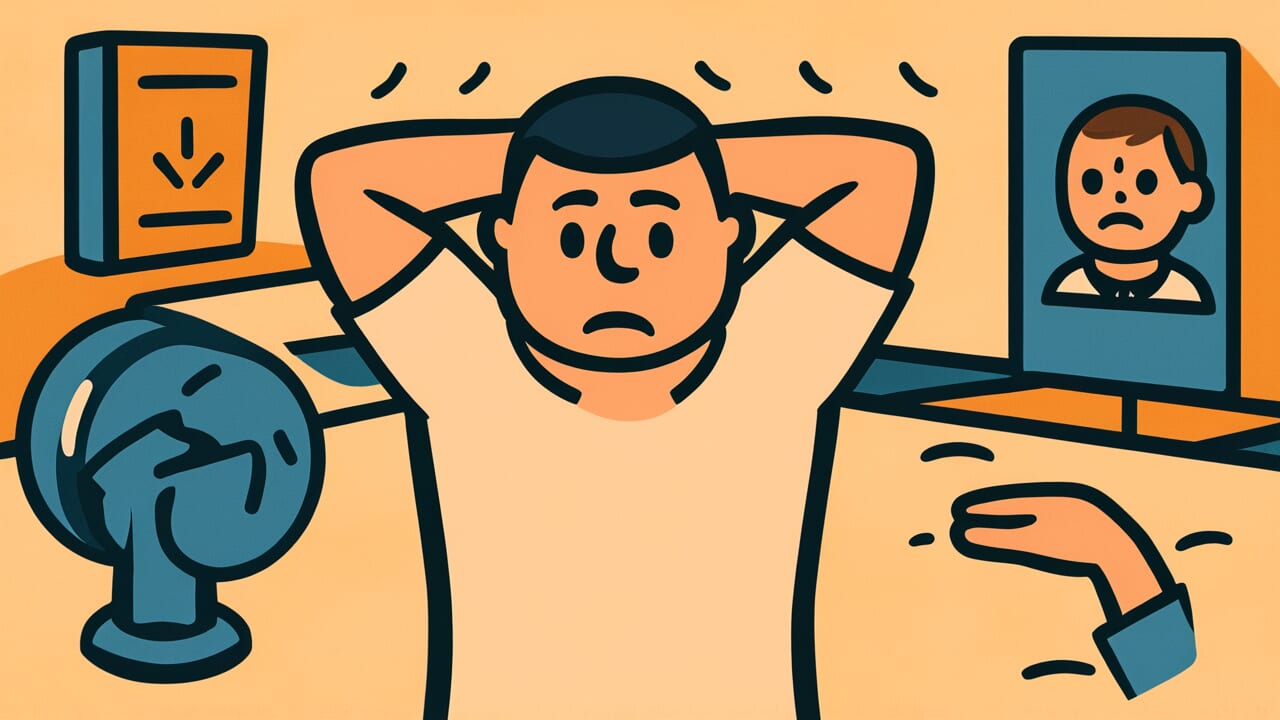How to Read “Blame yourself rather than blaming others”
Hito wo uramu yori mi wo urame
Meaning of “Blame yourself rather than blaming others”
This proverb teaches that when something goes wrong or you face failure, you should reflect on your own actions first before resenting or blaming others.
People naturally want to blame others when facing difficulties. But this saying emphasizes the importance of pausing to examine your own words, actions, and decisions.
For example, when relationships don’t go well, it’s easy to criticize the other person’s attitude or personality.
However, by asking yourself whether your own approach or words lacked consideration, or whether you tried to understand their perspective, you can often see the real problem.
This proverb conveys life wisdom: taking responsibility for yourself rather than blaming others leads to true growth and problem-solving.
Origin and Etymology
The exact source of this proverb is unclear, but it’s believed to have been widely used in moral instruction books and among common people during the Edo period.
The structure contrasts two opposing actions: “blaming others” and “blaming yourself.” This highlights the difference between natural human tendencies and the ideal response.
The word “uramu” (blame/resent) has long expressed feelings of resentment and dissatisfaction. When facing difficulties, people tend to look for external causes.
This may be an instinctive reaction to protect ourselves. However, the proverb uses “blame yourself” to redirect that impulse inward.
The choice of “mi” (body/self) is also interesting. Rather than simply saying “yourself,” using “mi” focuses attention on concrete actions, behaviors, and judgments.
This connects to Confucian ideas of self-reflection and Buddhist concepts of cause and effect.
In Edo period society, avoiding interpersonal conflicts and maintaining harmony were highly valued.
This proverb likely became established as practical wisdom for living in such a society, teaching the importance of personal responsibility.
Usage Examples
- Before complaining that the project failed because of team members, you should follow “Blame yourself rather than blaming others” and consider whether your leadership had problems
- You’re angry about being betrayed by that person, but as “Blame yourself rather than blaming others” suggests, you need to reflect on whether you made efforts to build trust
Universal Wisdom
Humans have a deep tendency to seek causes of suffering and dissatisfaction outside themselves.
In psychology, this is called a defense mechanism—an instinctive reaction to protect self-esteem. Acknowledging our own failures and flaws is painful, so we unconsciously blame others or circumstances.
This proverb has been passed down for hundreds of years because it recognizes this human weakness and shows a way to overcome it.
While you’re resenting others, problems never get solved. Resentment poisons the heart and steals opportunities for growth.
On the other hand, examining your own actions is certainly painful work, but that’s where the seeds of change and growth lie.
Interestingly, this proverb doesn’t say “don’t resent others.” By using the comparative expression “rather than,” it assumes humans will have feelings of resentment toward others.
It doesn’t demand you become a perfect saint. It simply asks you to change your priorities.
Look at yourself first, and if that doesn’t solve things, then look elsewhere. This is realistic and gentle wisdom.
This teaching includes not just the importance of taking responsibility, but also the meaning of reclaiming control of your own life.
As long as you blame others, you remain a victim. But when you acknowledge your own responsibility, you become an agent with the power to create change.
When AI Hears This
In control theory, when you want to improve a system, the concept of “controllability” becomes critically important. Simply put, this means identifying which variables you can actually manipulate.
Consider air conditioner temperature control. When you want a comfortable room temperature, the only thing you can control is the AC’s temperature setting.
You can’t change the outside temperature or the temperature in the next room. No matter how much you complain about the outside temperature, the room temperature won’t change by even one degree.
In control engineering, such uncontrollable elements are called “disturbances,” and it’s mathematically proven that energy spent dealing with them is wasted.
Human relationships are the same control system. Other people’s actions and thoughts are complete disturbances to you.
In control theory calculations, the efficiency of trying to directly influence disturbances equals zero. Meanwhile, the variables of your own reactions and actions are 100 percent controllable.
What’s interesting is that control theory demonstrates a method called “feedback control.”
Even when affected by disturbances, by adjusting the variables you can control, you can bring the entire system closer to the desired state.
In other words, without trying to change others, by changing your own responses, you can improve the overall system of relationships. This is mathematics proving the meaninglessness of resentment.
Lessons for Today
In modern society, with the spread of social media, expressing dissatisfaction and anger outward has become easier than ever before.
Criticizing someone and pushing responsibility onto others may bring temporary satisfaction. But this proverb teaches that precisely because we live in such times, we need the courage to pause and look at ourselves.
When you feel undervalued at work, before blaming your boss or colleagues, reflect on your own approach and attitude toward your job.
When relationships aren’t going well, before lamenting the other person’s personality, reconsider how you communicate. This isn’t about blaming yourself—it’s about believing in your potential for growth.
Self-reflection is never weakness. It’s the strength to live your life proactively.
You can’t change others, but you can change yourself. And when you change, your relationships with those around you naturally change too.
This proverb shows you the first step toward believing in and drawing out the power of change within yourself.



Comments